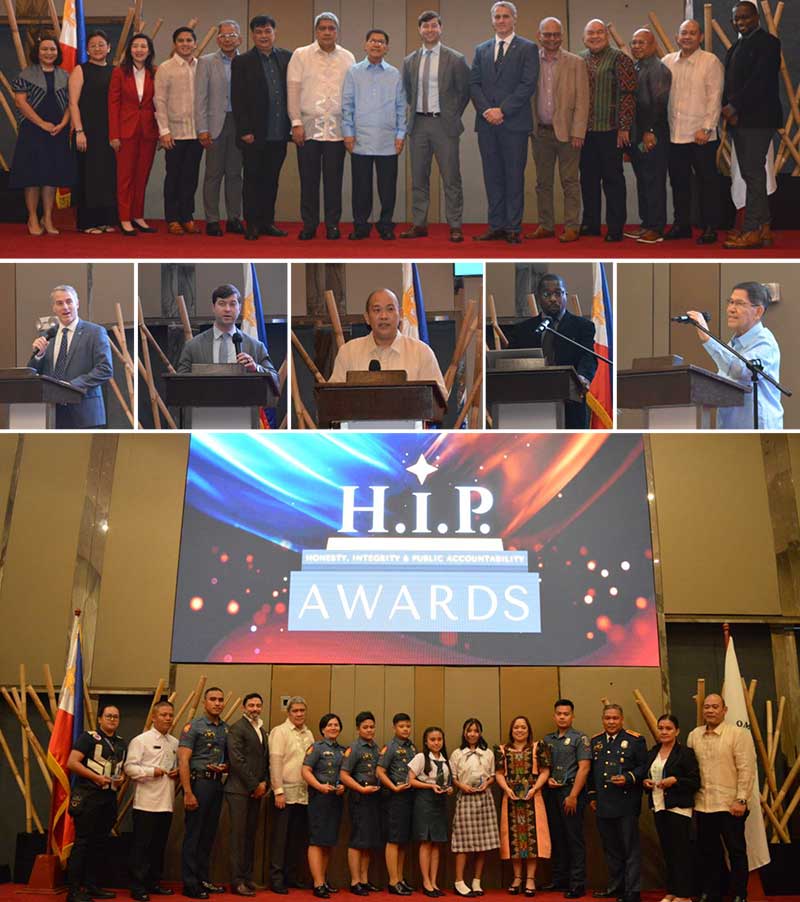
December 9 marks the commemoration of International Anti-Corruption Day (IACD) and as part of the observance, the Office of the Ombudsman held the SIKHAY LABAN SA KORAPSYON (SiLaK) Galvanizing the Anti-Corruption Sector Thru Strategic Innovations and Gender Mainstreaming, with the participation of various stakeholders and civil society organizations.
The SiLaK initiative is the Office of the Ombudsman’s collaborative advocacy platform to facilitate data-driven policy development and strategic innovations in the anti-corruption sector. It is an abbreviation for “Sikhay Laban sa Korapsyon,” a Filipino phrase which means ‘assiduity and diligence in the fight against corruption.’
The Office of the Ombudsman which is vested with broad constitutional powers, is cognizant that it must remain dynamic, responsive and collaborative to lead the enforcement of public accountability against graft and corruption, ensure the sanctity of public office as a public trust, and promote high standard of ethics in public service amidst challenges of modern governance and rising expectations from the public.
Its strategic interdependence with all branches in the government and other anti-corruption stakeholders is not only needed to effectively dispense its mandate but also for sustained improvement of its service delivery mechanisms and core functions.
Hence, continued revitalization of the Office of the Ombudsman, as well as the strategic innovations and collaborative programs that will be engendered, is an institutional imperative and serves as an integral part of the anti-corruption function of the institution.
Towards this end, this year’s SiLaK is focused on galvanizing the anti-corruption sector through strategic innovations and gender mainstreaming under the stewardship of the Office of the Ombudsman.
It specifically aims to: (a) strengthen linkages of justice and anti-corruption stakeholders towards an innovative, sustainable, inclusive, and transformative roadmap against corruption; (b) develop an I.T. enabled systematic knowledge repository and exchange facilities of anti-corruption studies, experience, and best practices; (c) promote data-driven policy development and management to promote integrity and fight corruption; and (d) sustain gender mainstreaming in policy-oriented discourse.
As one of the highlights of the celebration, the Ombudsman inaugurated the HIP Awards, a simple, multi-sectoral initiative that aims to recognize exemplary acts of Honesty, Integrity and Public Accountability. The HIP Awards is envisioned as an enabling tool in transforming ordinary citizens, through their seeds of exemplary acts, into champions of cornerstone Filipino values, that is—honesty, integrity and accountability.
In his keynote message, Deputy Ombudsman Anderson Lo remarked “the Office is aware that it must remain capable, if not dynamic, to lead the enforcement of public accountability against graft and corruption to assuage public trust.
As a way forward, the Office conducted major stakeholder consultation workshops on anti-corruption innovations in 2022 to solicit inputs in crafting a multi-year blueprint.
The key components of the blueprint can be categorized into 3 interlocking strategic innovation areas, namely, digitalization, comprehensive institutional capacity building and strategic collaboration.”
The 2023 International Anti-Corruption Day (IACD) seeks to highlight the crucial link between anti-corruption and peace, security, and development.
At its core is the notion that tackling this crime is the right and responsibility of everyone, and that only through cooperation and the involvement of each and every person and institution can we overcome the negative impact of this crime.
States, government officials, civil servants, law enforcement officers, media representatives, the private sector, civil society, academia, the public and youth, alike, all have a role to play in uniting the world against corruption.
The 2023 IACD also commemorates the 20th anniversary of the UN Convention against Corruption (UNCAC).





















